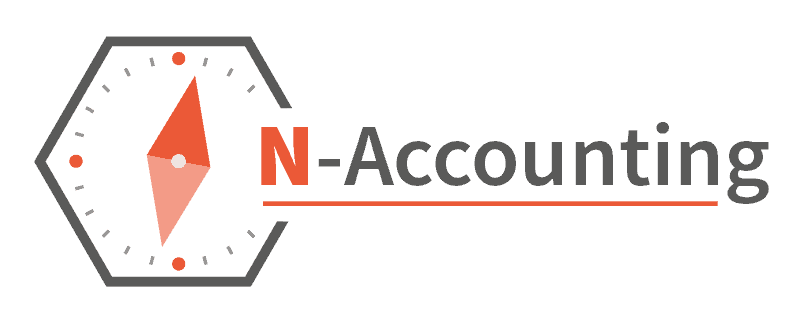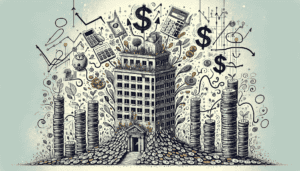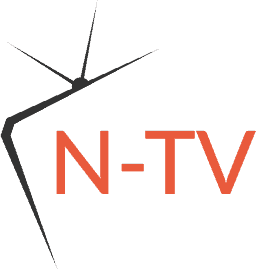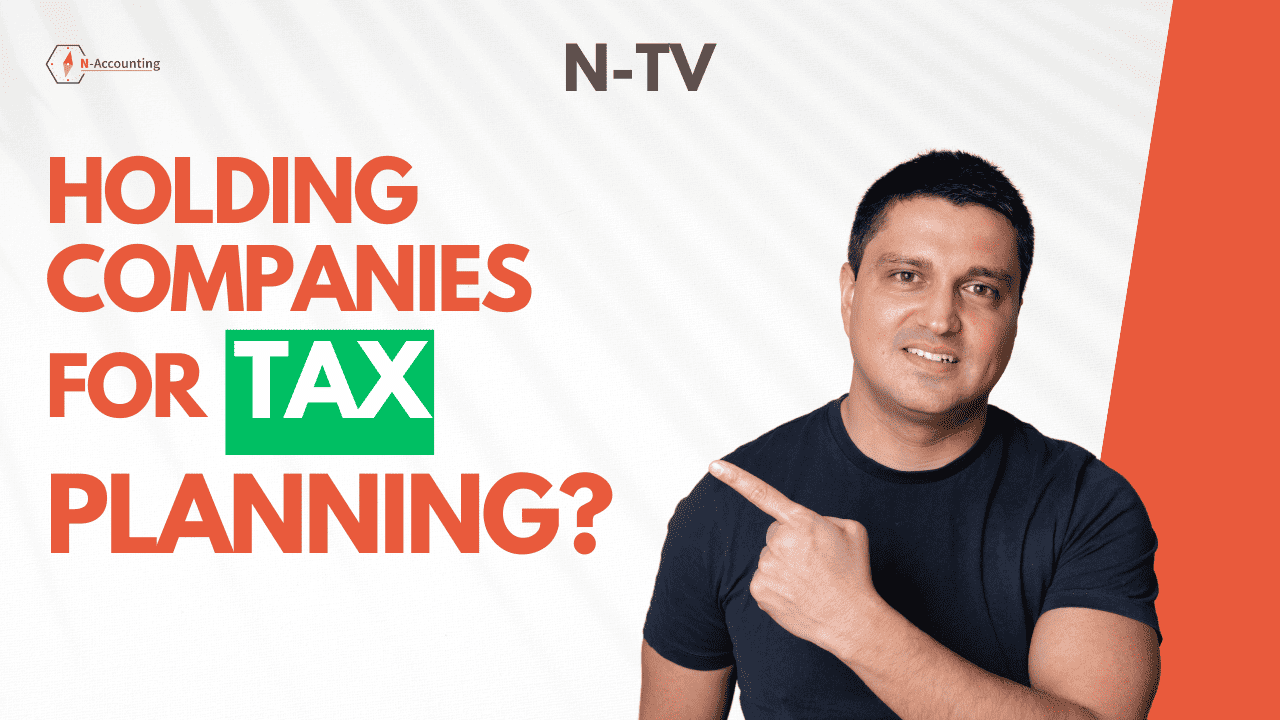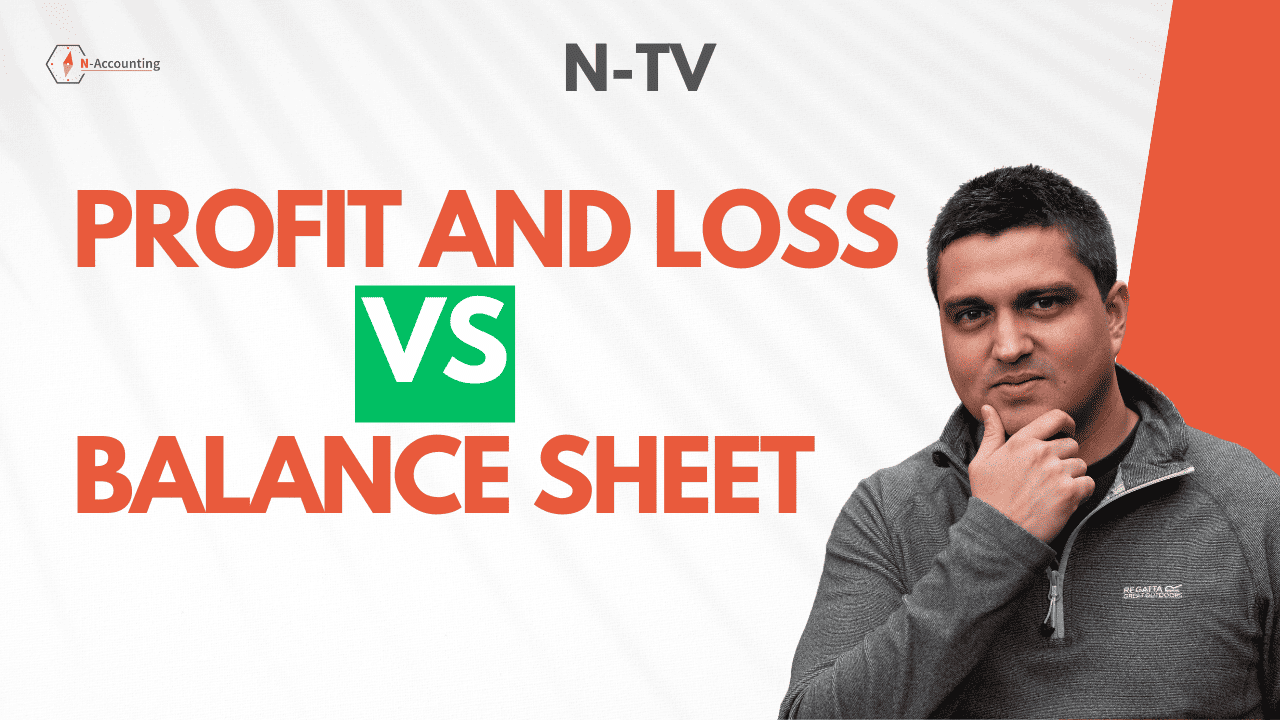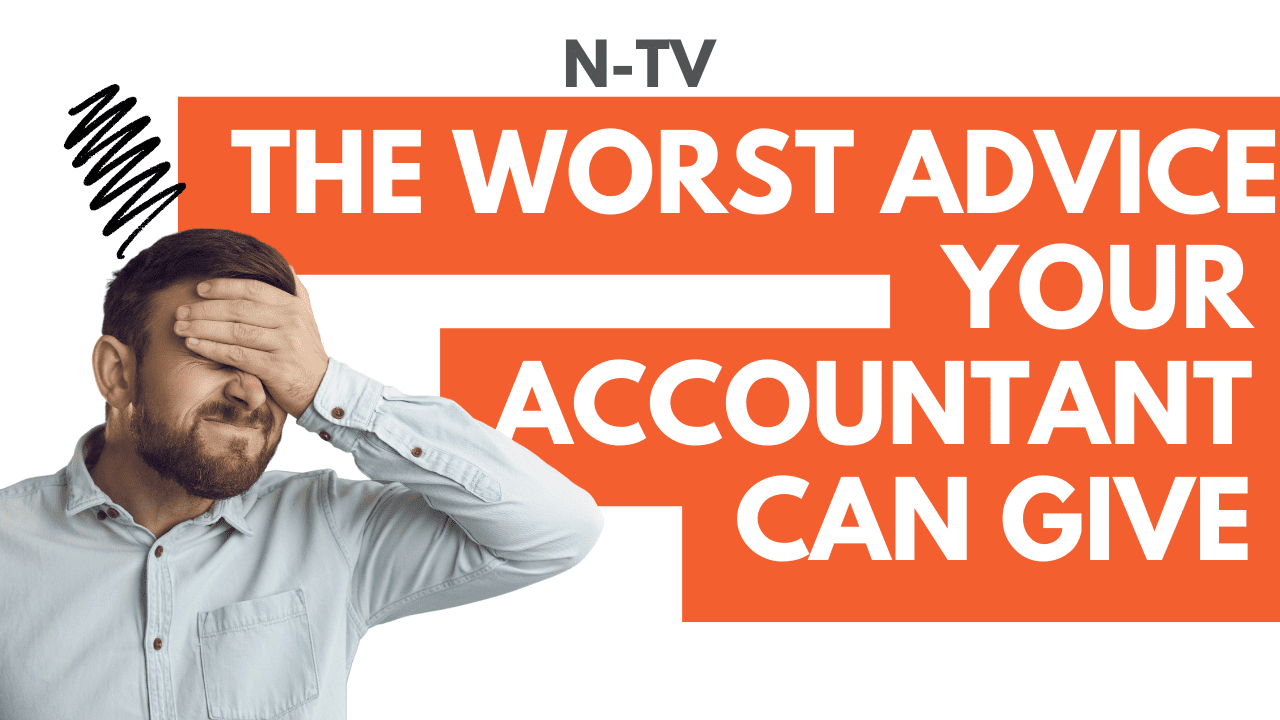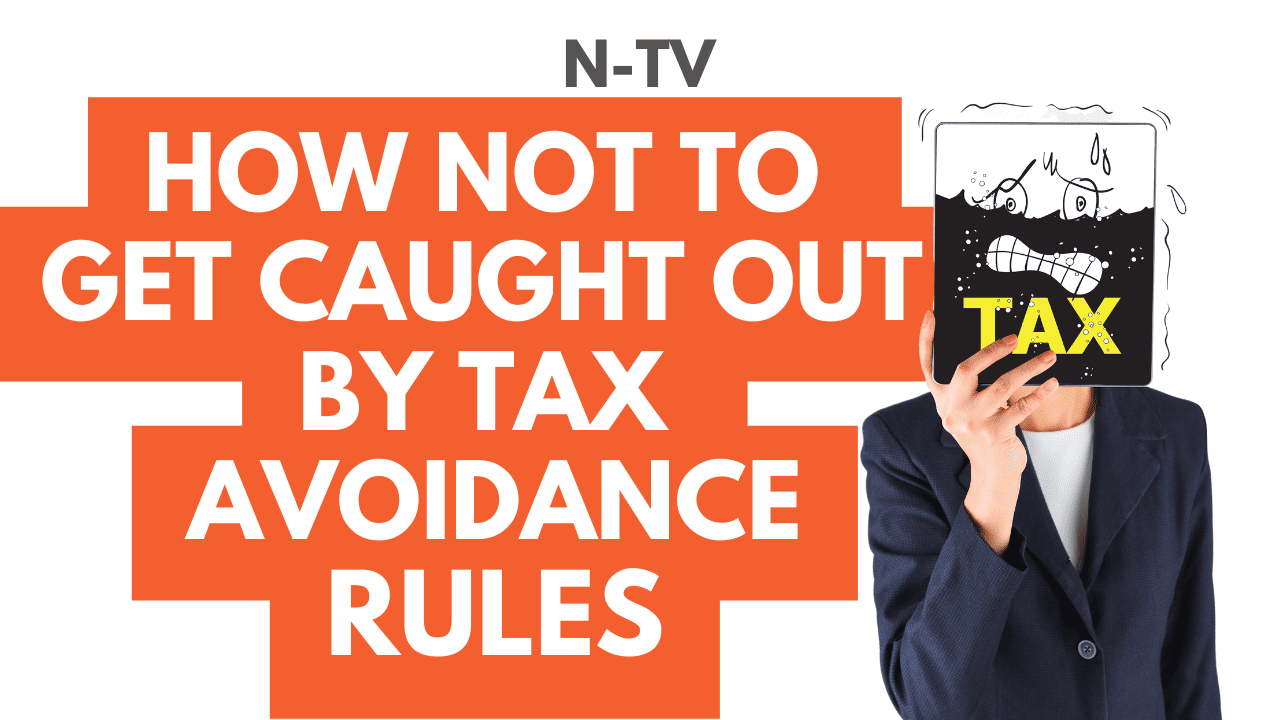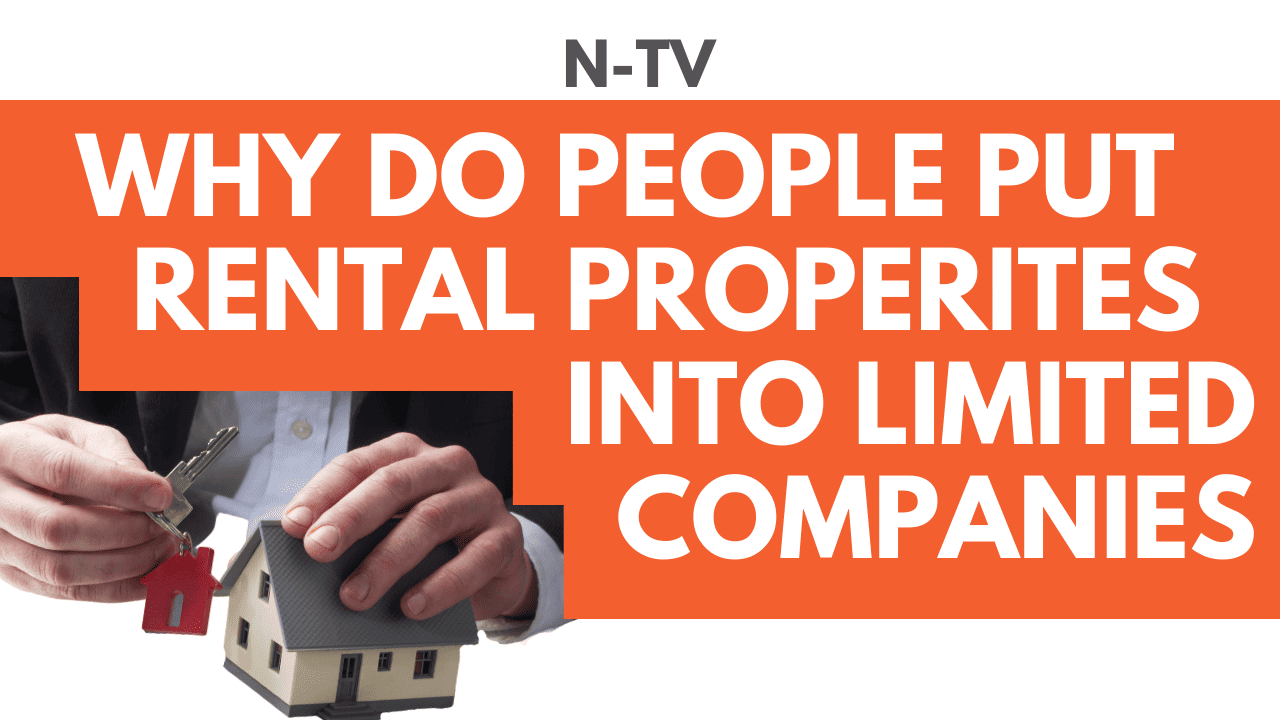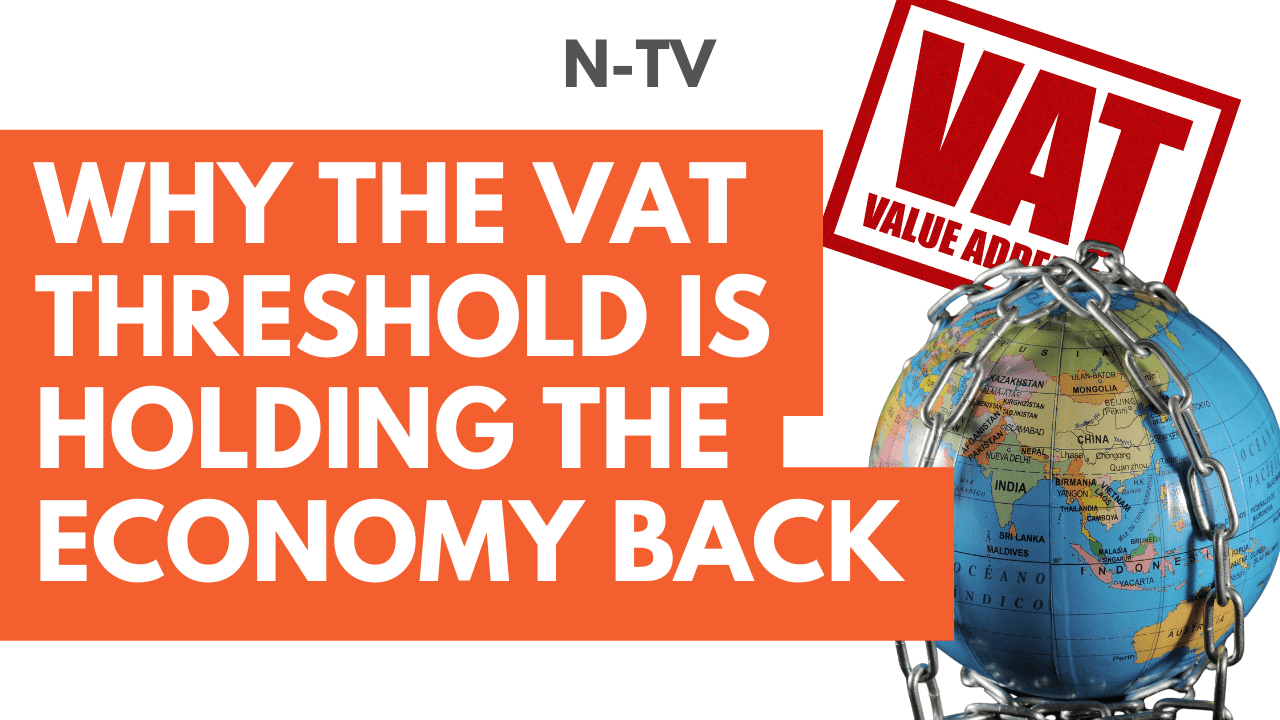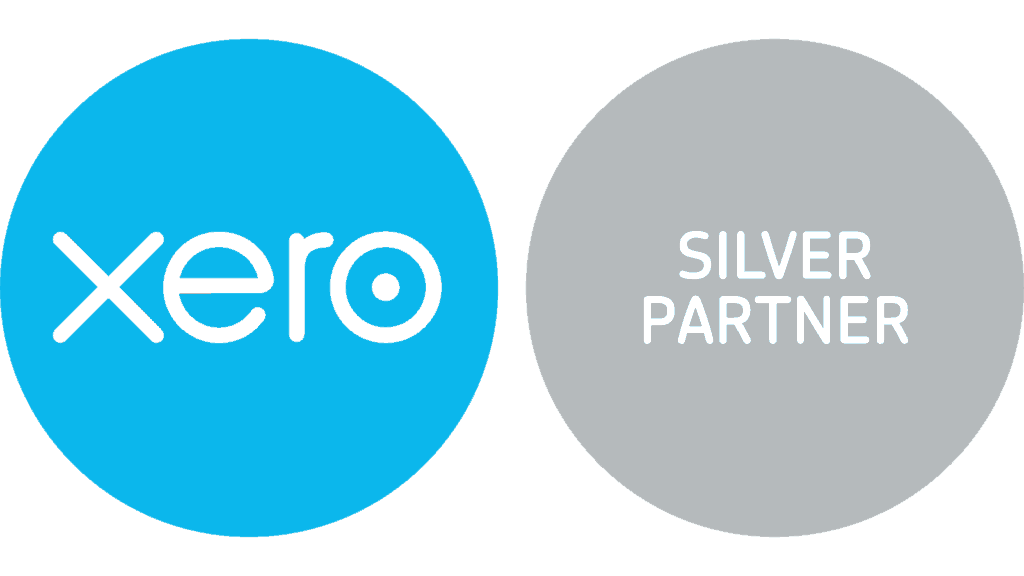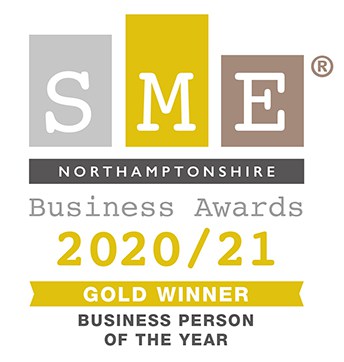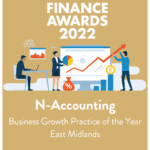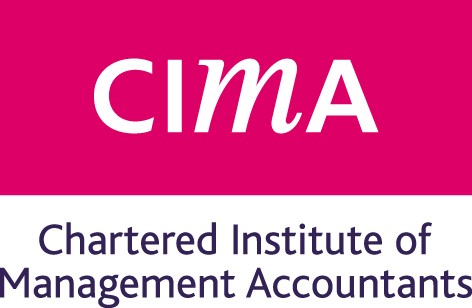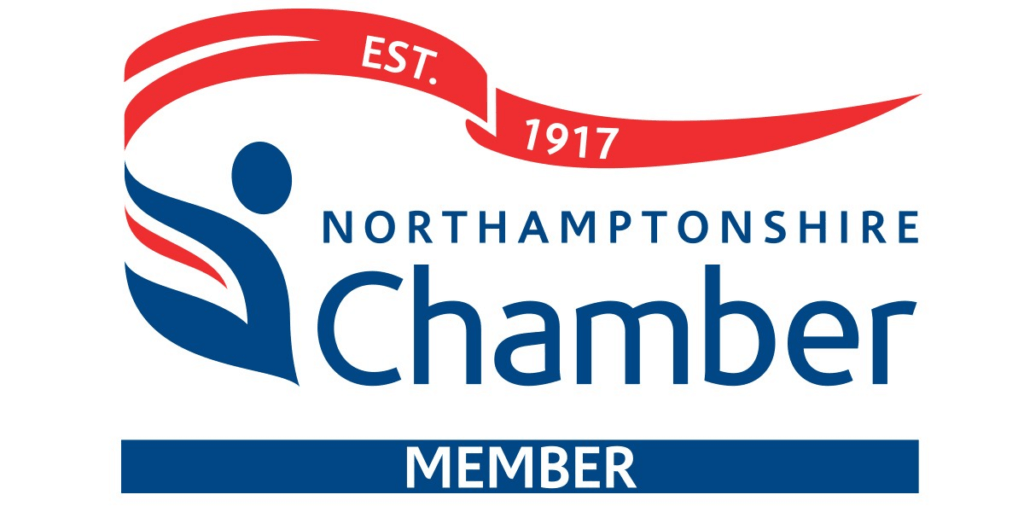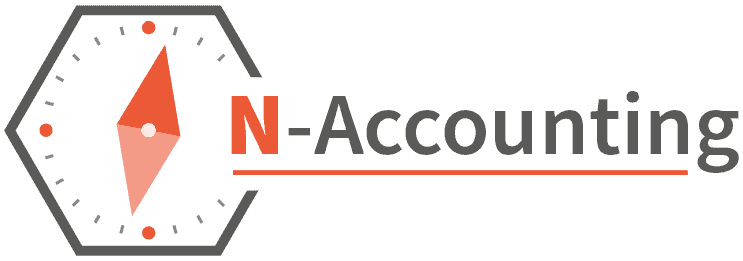Why every business needs a cashflow strategy
A cashflow strategy isn’t complicated, but many businesses are still trying to get by without a plan in place and they are suffering because of it. This video talks about what a cashflow strategy should contain and why they are so important.
Cash flow plans are really, really important so you can see the long-term impact of the decisions you’re making today, but today what I want to talk about is a cash flow strategy and every business needs a cash flow strategy, because what a cash flow strategy is, is essentially a set of rules in your business in terms of how you deal with cash. And today, what I want to talk about, and the reason you need those rules in the business to deal with cash is because if you run out of cash, you are screwed. If you have too much cash in the business, then actually a lot of people might think that’s a really good thing, but what too much cash in the business represents is a failure to invest in growth or a failure to reward yourself as a business owner.
So we don’t want too little cash in the business, but we don’t want too much cash in the business as well, because it just means you’re not growing at the right rate. So let’s talk about this. So there’s a few things that we’ve really got to get in place with this cash flow strategy, and let’s talk about what they are.
The Minimum Bank Balance
So firstly, you’ve got to have an understanding of the minimum bank balance that you are comfortable keeping in the business. So there’s a lot of different thoughts on it, but Mike Michalowicz, in his book Profit First, which I think is a great book, he indicates, “Well, you need to really work out three months’ worth of operating capital or working capital.” So if you add up all your overheads and then if you include how much you pay your team, then Mike Michalowicz essentially says, “Yeah, keep three months’ worth of your overheads in the bank account.” So if something did happen, like maybe COVID and your business had to shut down, you could at least keep it going for about three months while you then adapt it and then start growing it again.
So the minimum bank balance is a really, really important thing and that’s your target because you don’t want to go below that minimum bank balance, but you don’t want to go too much above it because if you go too far above it, then what you’ll find is that you’re not investing properly in growth. So you’ve got to control those bank balances.
Having a Banking Plan
Secondly, we have to have a banking plan as part of it, because if you’ve only just got this one bank account in your business and all your money is in that one bank account and then something happens with that bank, they pull your banking, they stop letting you bank, because it does happen actually, banks cancel bank accounts. So you don’t want all of your money in one bank account essentially. So you do need to spread it out a little bit with a couple of different banks. And actually just bear in mind, bank accounts, I think they’re only guaranteed up to about 85,000 pounds by the FCS. So if you’ve got more than 85K in a bank account, you need to be pushing it out into other banks anyway.
And then what we need to talk about is if you think you’re going to run out money, as part of this cash flow strategy, you’ve got to understand how you’re going to balance the books. So it could be that you have to go out and borrow money, so that can be part of your cash flow strategy, or it could be that you need to make some changes in the business. And then if you think you’re going to have too much money, then what you’ve then got to do as part of the cash flow strategy, you’ve got to say, “Okay, is this going to be reinvested in the business and how are we going to do it?” But that’s part of your overall business plan. Or, “Am I actually going to take a payout as a business owner?” So that’s another thing, you’ve just got to understand how you’re going to manage that bank balance so you don’t go above or below your targets.
And that’s the main part of the cash flow strategy. So it’s just about controlling your bank balances to keep them within certain limits that you’ve worked out carefully for your business. And by doing that, you’ll make sure that your business stays safe financially, but also that you can continue growing at a good rate because you’re then reinvesting money as it’s being made.
So if you want to find out more about how to create a cashflow strategy, if you want to understand more about cashflow planning, then we are the experts at doing that. So book yourself in for a strategy meeting with me and you’ll learn more about that. Just bear in mind, we’re going into a recession now so cash flow management, careful cash flow management is so, so important. So, definitely take me up on that offer.
What is financial freedom and how is it different from cashflow freedom?
I hope you’re having a great day. So today’s video, I want to talk about something that’s really, really important to me and a lot of the business owners I come across, and that is about what financial freedom is and its better alternative, cash flow freedom.
So financial freedom’s a term that’s used a lot, especially in business books. And financial freedom is about getting to a point where you don’t have to worry about money again. So the reason that people use the term freedom when talking about cash flow and financial freedom is because what it means is when you don’t have to worry about money because you’ve already set yourself up in a way where you’ve got enough money to cover your lifestyle, then you can actually start doing things in a different way.
I think a lot of business owners have been in a place in the past where they’ve had to take on a customer they didn’t really want to work with just because they had to pay the bills and they had to pay their team. And though those people and if that was you, you’d probably recognize that you know what? Sometimes having to make money can put you in positions you don’t necessarily want to be.
So the desire to get to a point where you can do things because you’re passionate about them, because they align to what you want to achieve in your life and the legacy you want to build and not have to worry about money, that is really desirable for a lot of people.
What I’d say is a lot of those things, you can make money as well as do all the things you really want, and I’ll get to that in a few minutes. So financial freedom typically is where you’ve got enough coming in, including a surplus, where you cover all your costs and your lifestyle.
So a lot of people think they can achieve financial freedom just by making a shit-load of money, and they are wrong. Some of the poorest people in the world are millionaires on paper. Some of them. Most of the really poor people in the world just have absolutely nothing. And that’s a different thing, which I won’t cover. But it is possible to be like a multimillionaire and be incredibly poor, and I’ll explain how.
If you’re a multimillionaire and … firstly, you could have done it just by building up loads and loads of assets but those assets aren’t really releasing money and you don’t have the ability to sell those assets. Maybe because they’re locked in because of big tax bills, maybe because they’re really long-term investments.
So you can end up having loads of assets on paper but not having access to that money or … And the other thing is you could end up having loads and loads of assets that do give you money but not enough to cover your lifestyle. And this is quite typical amongst lottery winners, for example. So people who win the lottery, they tend to end up broke a few years later anyway because they don’t … What happens is they don’t understand that to actually become wealthy, you have to control your lifestyle and your expenses.
So I’m not saying go to Aldi and buy their cheapest baked beans. But what I’m saying is if you’re a multimillionaire, if you keep on letting your lifestyle expand and expand and expand in terms of its financial requirements, what you could end up with is is a lifestyle, even though you’re a multimillionaire, that costs more than the revenue your assets generate.
So that’s why it’s possible to actually be poor, even though you’re a multimillionaire on paper with those assets. And then eventually what happens is your lifestyle, it keeps increasing and you get to a point where you have to start cannibalizing your assets, selling them off, and then essentially that’s how you lose your millions.
So this video is talking about how financial freedom works, which I think I just explained. It’s about making more money, but at the same time also controlling your costs. But not so you live a really frugal life, but in a way which means you’re generating the best value for the money you’re spending. And then I’m going to go on to the better alternative to cash flow freedom.
So cash flow freedom is a term that encompasses everything, all of your assets, all of your investments, everything going on in your financial life. So you could have a pretty average business but just because you’ve been setting enough money aside every year and you’ve used it to buy a rental property portfolio, you could have used it to invest in other things, stocks or shares, which are delivering a return, you can achieve financial freedom that way because you’re creating all this residual income that’s more than covering your lifestyle.
But cash flow freedom is actually about achieving it solely through your business. And I think this is the one that’s overlooked. Most people I talk to say that they want financial freedom and that’s why they keep taking money out of their businesses to then invest in properties and then to invest in shares and stocks and all that kind of stuff.
So cash flow freedom is about achieving financial freedom but in a way where you actually leave money in your business and then use that money to grow your business to a point it delivers a really, really healthy salary and dividends for you every year, and it also grows in value to a point where you could actually sell it.
So financial freedom is about achieving financial freedom through all of your means and investments. Cash flow freedom is about getting your business to a point where it gives you so much money that you can actually then just make decisions for the right reasons rather than having to just pay the bills. So two very different things. Depending on which route you go down, you’ll probably run your business in very different ways as well.
So as accountants, we specialize in cashflow and profitability growth for our clients. So come and talk to me about what cash freedom actually looks like. We’ve got our signature solution called Apex and it’s designed to help business owners go from earning 50k a year to half a mil, plus having a business that’s worth a million pounds in the space of three years.
So come and talk to me about that. We offer a free strategy session. If you want a million-pound business, if you want a healthy take-home pay, we can show you exactly how to do that. All right. Thanks for watching. Remember, if you liked this video, found it useful, remember to like, share and follow and I’ll see you at the next one.
Why you need cashflow planning software
Hi, everyone. I hope you’re having a great day. It’s Nishi Patel from N-Accounting. And today, I just want to talk you through what cash flow planning software is actually available out there at the moment. And why, to be honest, pretty much every growing business should have it.
So, one thing I can say is, I qualified as a chartered management accountant in, I believe it was 2010. And obviously, I was studying before then. So I’ve probably been working on forecasting and accounts since 2007. And it’s only since I actually got into the small business world, I started getting a good understanding of the different types of software that are out there. Because the software for small businesses tends to be far better and more accessible, than software for larger businesses that I’ve seen. I think it’s just a lot more affordable. There is good software for big businesses as well.
So what I wanted to do is just give you a bit of an outline, in terms of what cash flow planning and business forecasting has been like in my career up to now. The biggest challenges we’ve faced, and then one of the biggest solutions available, which will really just skyrocket your growth. So typically, in the past, we’ve always done everything on spreadsheets. So what would happen is, you’d have a forecast, it’d say, “You’ve got starting bank balance”. And based on the starting bank balance, everything you’re expecting to come in, plus everything you’re expecting to go out, will then give you an end bank balance for that month. Then, if you keep doing that every month for the next year, two years, three years, then, in theory, as long as you are reasonably accurate in terms of what’s going to come in, what’s going to go out, you will then end up in a position where you can reasonably predict your bank balance at the end of every month.
So why would you want that? Why would you want to predict your bank balance at the end of every month? Well, quite obviously, if you’re going to run out of money, it’s better to figure it out, probably, months in advance. Because the saying, “People will only ever lend to you when you don’t need the money. And people won’t lend to you when you do need the money.” So by the point where your business runs out of money, your credit rating’s already trashed. So if you’ve got the ability to predict how much money you’re going to have, and if you’re going to run out, a year before, two years before it happens, then you can actually just take some proactive and long-term action to actually then put the right funding in place.
And there’s other things you can do. You don’t always have to get funding to maintain your cash flows. You might just say, “I’m not going to pay the bonuses.” You might just say, “Well, that bit of investment we were going to do, it’s clear from a cashflow point of view, we can’t invest it. So we can’t afford it, so we’ll just delay it.” So the idea of predicting your cash flows is so you can make decisions well in advance.
Also, it goes together other way. If you’re going to end up with too much money in the bank account, and then you need to find proactive ways to start investing that in long-term investments for your business and long-term strategies for your business. Rather than just realizing at the last minute, then just throwing it at whichever supplier sounds the best at the time. So it’s all about doing your research and doing your preparation.
So you know what? A lot of these larger businesses, they used to hire accountants like me. They still do. And the reason they had to hire these accountants, and let’s face it, we’re not cheap when we’re working for a larger company. A finance manager’s going to cost you about 70 to 80 grand a year. So one of the things about hiring these team members, the reason they had to do it is because, typically, in the past, they’ve always done everything on spreadsheets. And what happens is, because the month ends and then the next month starts, you then need someone to actually go into that spreadsheet and then rework all your calculations to factor in that a month has just dropped off the start. But then you’ve got to put a month on at the end. So actually cash flow forecasting in the past was a very expensive investment for larger businesses, but they always saw the value in it.
So the one thing that small business owners are really, really overlooking at the moment, is the software that is replicating that for a fraction, less than a percent of the cost. So one of the bits of software that we use in my business, and I will just show you, we use a bit of software called Float. And what Float does is, it’s almost like a bit of a spreadsheet. I’m not going to zoom in too much because, obviously, I don’t want to publish all my finances online. But what Float does is, it actually connects up to Xero. So when you create your forecast, it then pulls information out of Xero, and it actually shows you how you’re doing compared to that. So if your forecast is particularly unrealistic, and when you actually do have money coming in or going out, you understand that contrast. That’s hugely important in helping you refine your assumptions. So that’s a really important one.
But one of the biggest time savings is the fact that, every month, it just repopulates itself. You don’t have to worry about messing about with spreadsheets. And also, when you’re doing stuff on spreadsheets, you’re more likely to make a mistake. Whereas, this is always right, because it’s a program and everything’s coded in. So it takes the human error out of forecasting, it helps you understand how you’re actually doing compared to your assumptions. And you know what? This costs, I think, probably about 50 or 60 quid a month. But for the fact that it gives you complete control over your finances, it’s an amazing bit of software. It’s also great because then you can run other scenarios. So you can say, “Well, what if my growth was more than I originally planned, what would it look like?” And then it’ll say, “Well, originally you planned this kind of growth, but now it’s this.” So it’s a really good bit of software.
And what we do with our software is, we actually give that to our clients. So we do a lot of business modeling for our clients because our signature solution, Apex, is around helping people build their million pound business. So we can show them what their million pound business will look like from a packages, products, volume pricing, and then, staff overheads and marketing perspective. And then what the sale value would be and what their take home pay would be. But ultimately, when you’ve got the end result in mind, you’ve also got to understand the steps to get there and what the risks are in getting there. So that’s how we use that bit of software, which I just showed you. It’s about actually just saying, “Okay, well, we know where you want to be, but let’s look at how you’re going to finance your business on the way there.”
So I think a lot of business owners can use it by themselves, but when you couple it with a business model and proper financial insight, then it becomes an incredibly valuable tool. Obviously, we give it to our clients for free as part of our Apex program.
So if you’re interested in finding out a bit more, if you have a business, which might only be worth a couple of hundred pounds… Sorry, £100,000, or it might just be worth a couple of hundred pounds. And you want to understand how you can make it into a business you could sell for a million, then you’ve got our Apex program. We’ve got a million pound processes. And everything in conjunction, including forecasting software and capabilities, will get you to your million pound business. So book yourself in for a free strategy session with me. Just comment below or email me. You got N-Accounting, so you’ll find all our contact details there. And I’ll talk you through exactly how you can do it. If you found this video useful, also like, share, and follow, and subscribe. And I look forward to seeing you at the next one.
Looking for a new accountant?
GET IN TOUCH
How a Business Credit Card Can Help You to Better Manage Cashflow
As we edge ever closer towards a completely cashless society, credit cards are becoming more and more necessary. Business credit cards are also enormously helpful for bookkeeping, payment protection and emergency funds. So long as you manage your account well, a business credit card can really help you to manage your cash flow more effectively and smooth out any bumps along the way. Here are the top reasons to get a credit card for your small business.
Separate Business and Personal Transactions
It’s important to keep your personal and business transactions separate. When you use the same account for both types of expenses it becomes very difficult to understand how your business is actually faring financially. Furthermore, it can be tricky to remember which transactions were personal and which were business-related, leading to problems and headaches when it comes to filing your tax return – not to mention missed deductions. A business credit card keeps a simple log of all of your transactions, functioning as a basic bookkeeping system and giving you a clearer picture of your financial situation.
Most business credit cards provide summaries of your spending, simplifying your data for you. Better still, many providers allow you to export your transactions to your cloud accounting software program so that you don’t have to waste time on data entry. This is enormously useful for analysing your spending habits and creating cash flow projections to help you better manage your money.
Build a Better Credit Score
A business credit card is an excellent way to build a good credit history or improve a less-than-stellar reputation. Of course, in order to do this you must manage your card well, keeping your balance low and making fast repayments. Doing so will increase your score and mean that you will be a more appealing borrower and receive better interest rates.
Convenience and Protection
A business credit card gives you easy access to funds – no waiting for clearance or processing. You can make purchases quickly and easily, and you’ll benefit from free purchase protection, too. This provides your small business with a basic line of defence against theft and fraud.
A Cash Reserve
Every business needs a cash reserve for emergencies or difficult times. A business credit card provides a line of credit, allowing you to continue operations when funds are running low. This also gives you more freedom and flexibility when making purchases to grow your business. As a small business owner, you often have to spend money in order to make money and a credit card can really help with this.
Of course, a business credit card should only be used as a short-term solution to avoid mounting debts and interest. It’s very useful when a customer is late with payment or you’re waiting for funds to clear, but it can’t keep you afloat forever.
Discounts and Rewards
Some business credit cards offer lucrative bonuses and discounts which can be good news for your cash flow. You may also be able to earn cashback on certain purchases and earn rewards points, which you can later cash in for business expenses.
There are many great business credit cards out there with an array of lucrative rewards. It’s worth shopping around to ensure that you choose the card that’s most closely suited to your needs. For example, if you travel a lot for business purposes then a card which allows you to earn AirMiles would be a wise choice.
Summary
A business credit card offers flexibility, convenience and peace of mind for small business owners. Using a business credit card can simplify your financial records, save you money and protect your company during tough times and emergencies. So long as you keep a close eye on your balance and keep up with repayments, using a business credit card can greatly improve your cash flow management.
Why the only way to achieve healthy cashflows is to build a marketing funnel
Hi it`s Nishi Patel from N-Accounting, hope you have a great day. So today’s video, what I want to talk about is why marketing funnel and a sales funnel is actually very, very closely linked to a business that has healthy cash flows. So the challenge with most businesses in the world is they tend to have peaks and troughs and when they get busy, they stop marketing. And because they stop marketing, they get busy again, sorry, they get really quiet. And it’s just this rollercoaster that goes up and down. And one of the things that the majority of businesses out there lack is some sort of marketing and sales funnel. And I don’t know if you watched any of my other videos on sales and marketing funnels, but the whole premise behind a sales and marketing funnel is instead of having all these ups and downs in your sales and your work, and the amount charge your customers.
The idea of having this marketing funnel is that you’ve just got this consistent tap you can turn on and off when your business needs it, because you’ve essentially built an infrastructure for marketing that’s so reliable that you know that if you put X in, you get Y out. So that’s the whole point of the marketing funnel. But the reason that’s so important to cash flow as well is because ultimately if you know, you can put X amount in and get Y out that means you can always invest what you need to, to deliver the end cash and profit that you want to achieve. So that’s why it’s important.
Just a bit of a refresher. So what a sales and marketing funnel is, is a realization that actually, if you just go up to someone and say, “Hey, my buy my stuff.” They’re just not going to do it. One thing my coach always told me is, out of a hundred people that you talk to that are in your target market, 3% will be ready to buy straight away, 7% will buy within three months, if you keep in touch with them on a regular basis. And the other 40% will buy within two years, but 50% will never buy from you. But the challenge that most businesses face is they just do sporadic marketing, and they only ever reach into that 3% that are ready to buy today. They never nurture the remaining 47% that will buy within two years. And that’s why they never get consistent results with their marketing. And then actually their cashflows suffer as a result. And they can never make the long term investment in their business because they just don’t know what’s going to come in and what’s what’s going out.
So what the whole point of the funnel is, it’s designed to keep consistent contact. A lot of marketing experts say you’ve got to have 13 points of contact with someone before they buy from you. So the whole point of the funnel is, it’s making sure that you consistently reach out to all of your prospects 13 times, at least, so that when they are ready to buy or when you convince them to buy, then they only think of you. So that’s a whole point of funnel.
Sales and marketing funnels, they do take some effort to build, but you only ever have to do it once. Obviously tweak them over time. There’s loads of experts out there who can actually help you build them and agencies you can outsource it to, but it’s probably one of the best investments you make in your business, because once you can predict what’s coming in, because you’ve got that infrastructure there, then it helps you really manage your cash flows and then manage the development of your business off the back of those cash flows.
What we do as part of our million pound processes and Apex course is we help business owners understand what the end value of their business needs to be to meet their personal goals. And we help them understand where they are today. And we give them all the tools they need to bridge that gap. So that includes understanding sales and marketing funnels and the whole process. It includes those financial and team based components as well. But if you’re interested in finding out a bit more about how you can increase the value of your business, then please book yourself in for a free valuation and strategy session.
If you get in touch with us, what we’ll do is we’ll make sure we’re definitely the right people to support you firstly, and then what we’ll do is we’ll get you through our valuation questionnaire. And then we’ll book you in for a meeting where we’ll give you a business valuation to help you understand exactly what your business is worth today, and then bridge the gap between where you are today and where you want to be. So please take us up on that offer. It’s incredibly valuable, and we’re offering it for free. So, definitely would love to see there. Remember if you found this video useful, remember to like, share and follow and I will see you at the next video.
